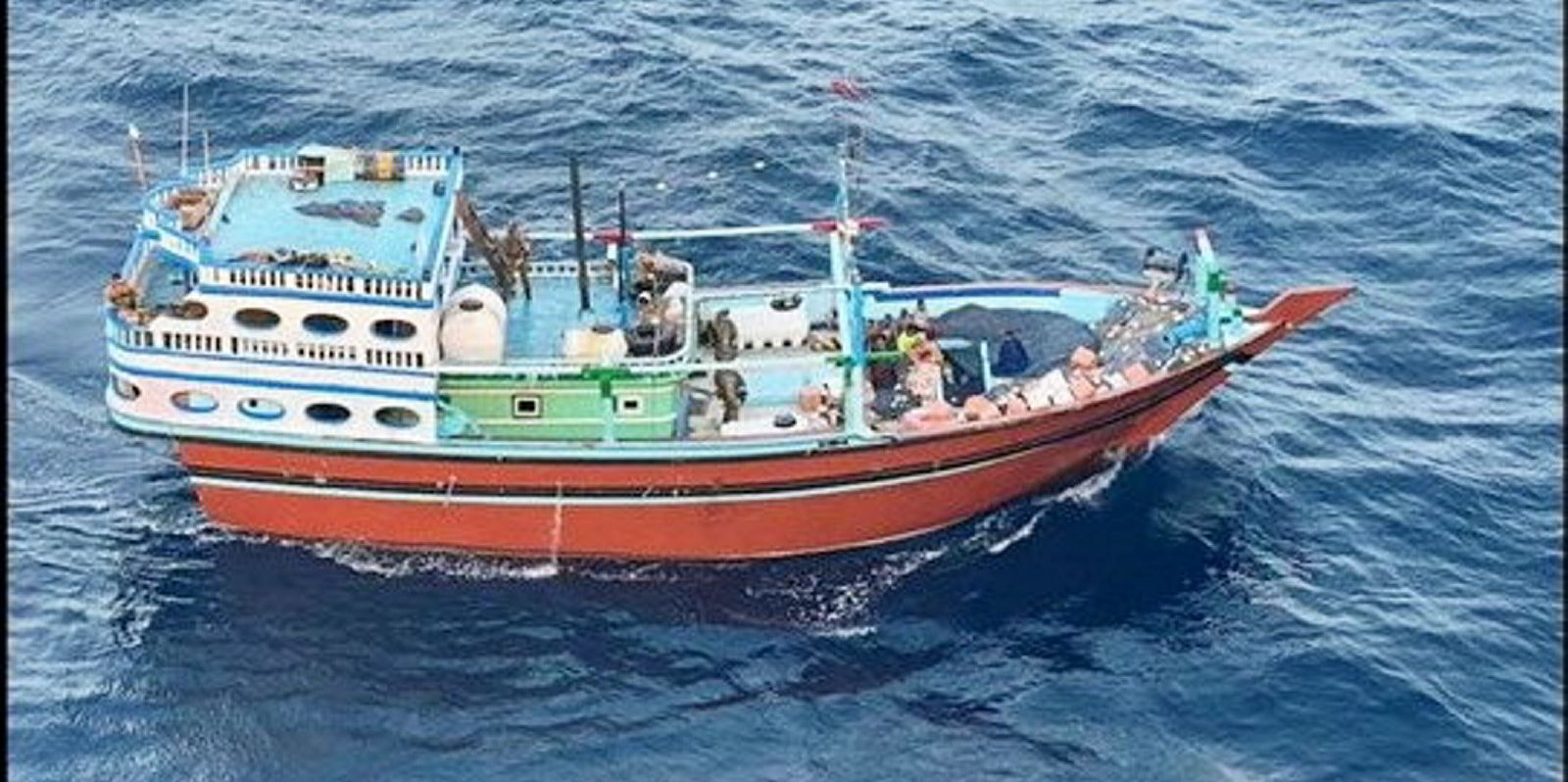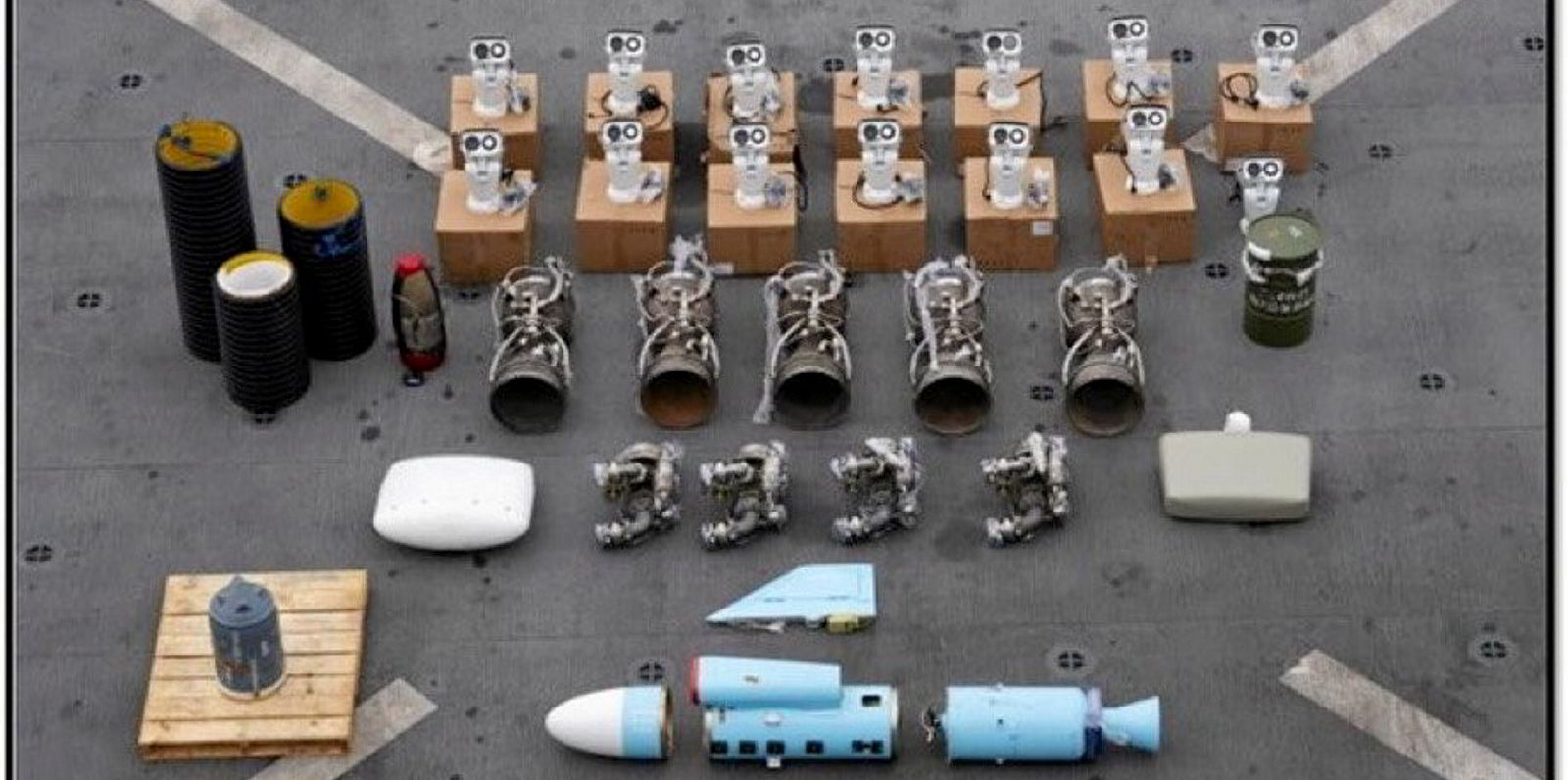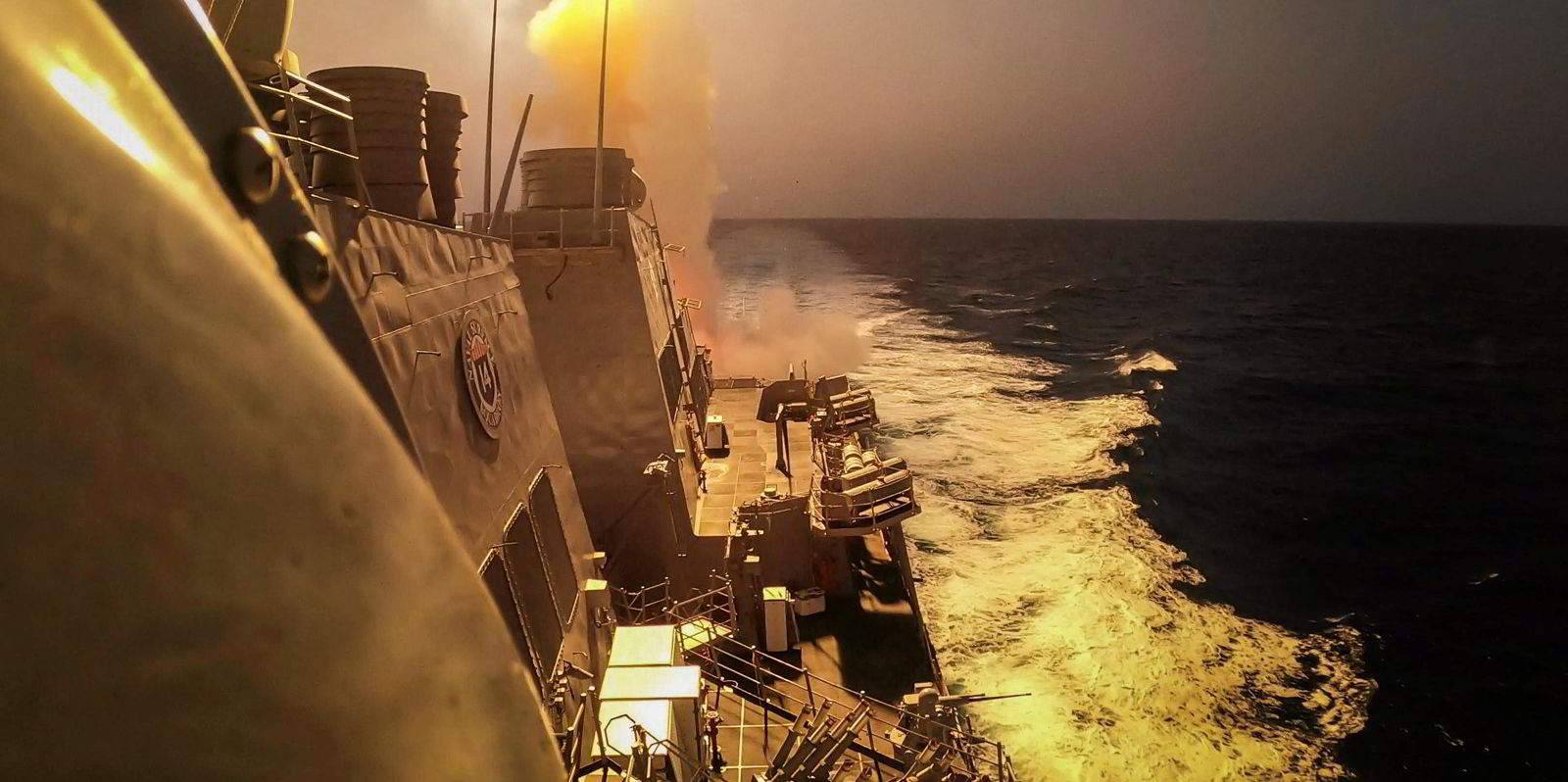The US military claimed on Tuesday to have intercepted the first known Iranian weapons cargo aimed at helping the Houthis disrupt shipping in the Red Sea and the Gulf of Aden.
Components of Iranian-made ballistic and cruise missiles were seized during the night of 11 January on board a dhow off the coast of Somalia in the Arabian Sea, Centcom said in a statement.
“Seized items include propulsion, guidance and warheads for Houthi medium-range ballistic missiles and anti-ship cruise missiles, as well as air-defence associated components,” the statement read.
“This is the first seizure of lethal, Iranian-supplied advanced conventional weapons to the Houthis since the beginning of Houthi attacks against merchant ships in November 2023,” Centcom added.
The US forces acknowledged that two Navy Seals known to have been missing in the area for several days, took part in the “complex boarding of the dhow” that was supported by US helicopters and drones.
The search for the US soldiers is still ongoing.
The dhow itself was sunk and the 14 people it had on board will be “determined in accordance with international law,” Centcom said without clarifying their nationality.
The operation represents a further step of escalation in the region where crisis erupted in November, when Yemen’s Iran-backed Houthi rebels started disrupting merchant ships to push Israel and its Western backers to ease the war against the Palestinian Hamas group in Gaza.

Houthi rebels have repeatedly launched missiles and drones against US and UK ships patrolling the Red Sea. On 31 December, US forces killed 10 Houthi fighters who were trying to board an AP Moller-Maersk ship off Yemen.
The Houthis have since vowed to step up their attacks against ships affiliated with Israel, the US and its allies. On 15 January, they followed up on their threats by hitting a bulker owned by US-based Eagle Bulk Shipping.
The 64,000-dwt Gibraltar Eagle (built 2015) did not suffer great damage from the missile hitting its side. However, the ship reversed its course, failing to cross the Red Sea as originally intended.
Insurance costs have spiked and several companies, mainly major container liners, have stopped sending their ships through the region.
However, bulker and tanker traffic by several operators has remained unaffected, with their owners attracted by rising freight rates or hesitant to break relations with charterers insisting that the vessels continue on the shortest route possible.
Other ship operators are reassured by the presence of Western patrol ships in the region or do not expect the Houthis to hit them as their home countries or trade patterns are not allied or affiliated with Israel.






